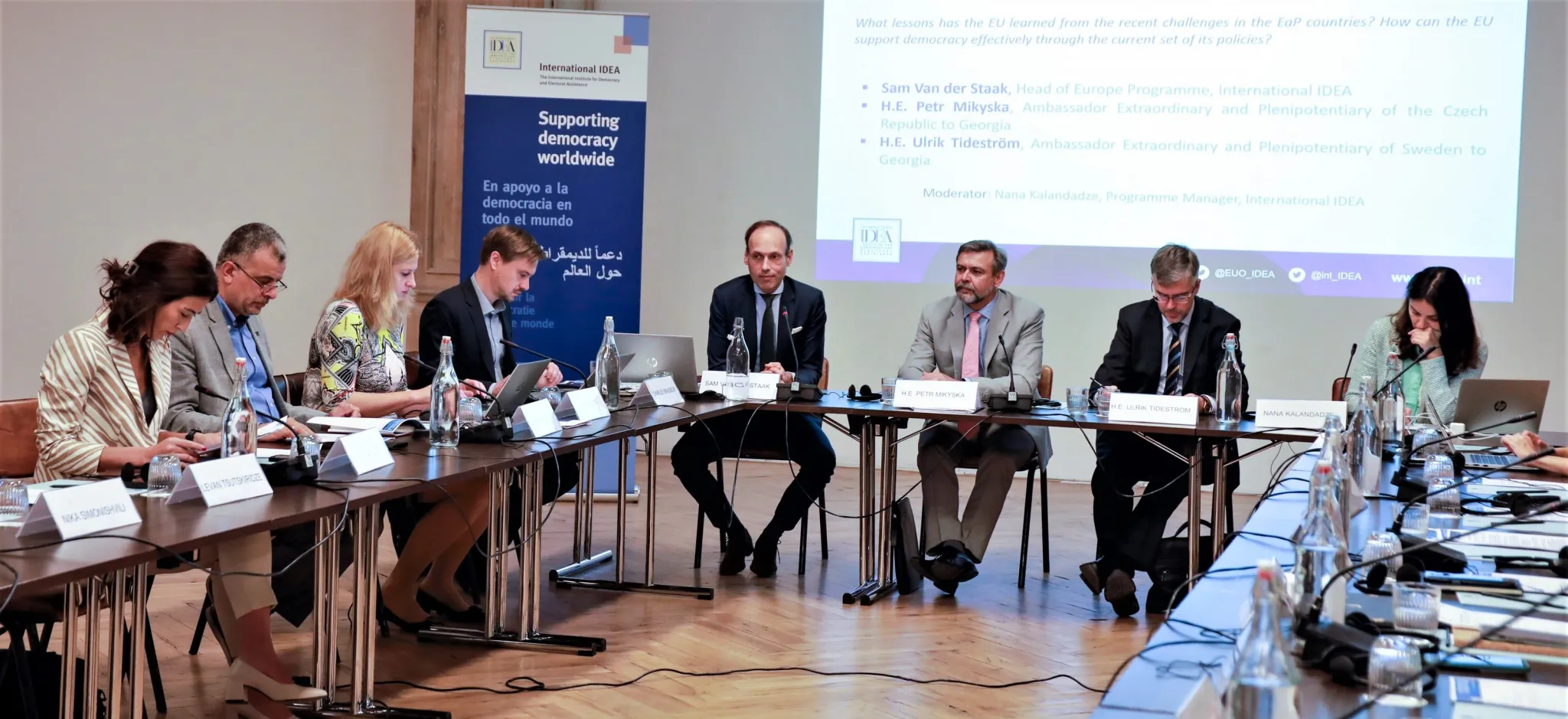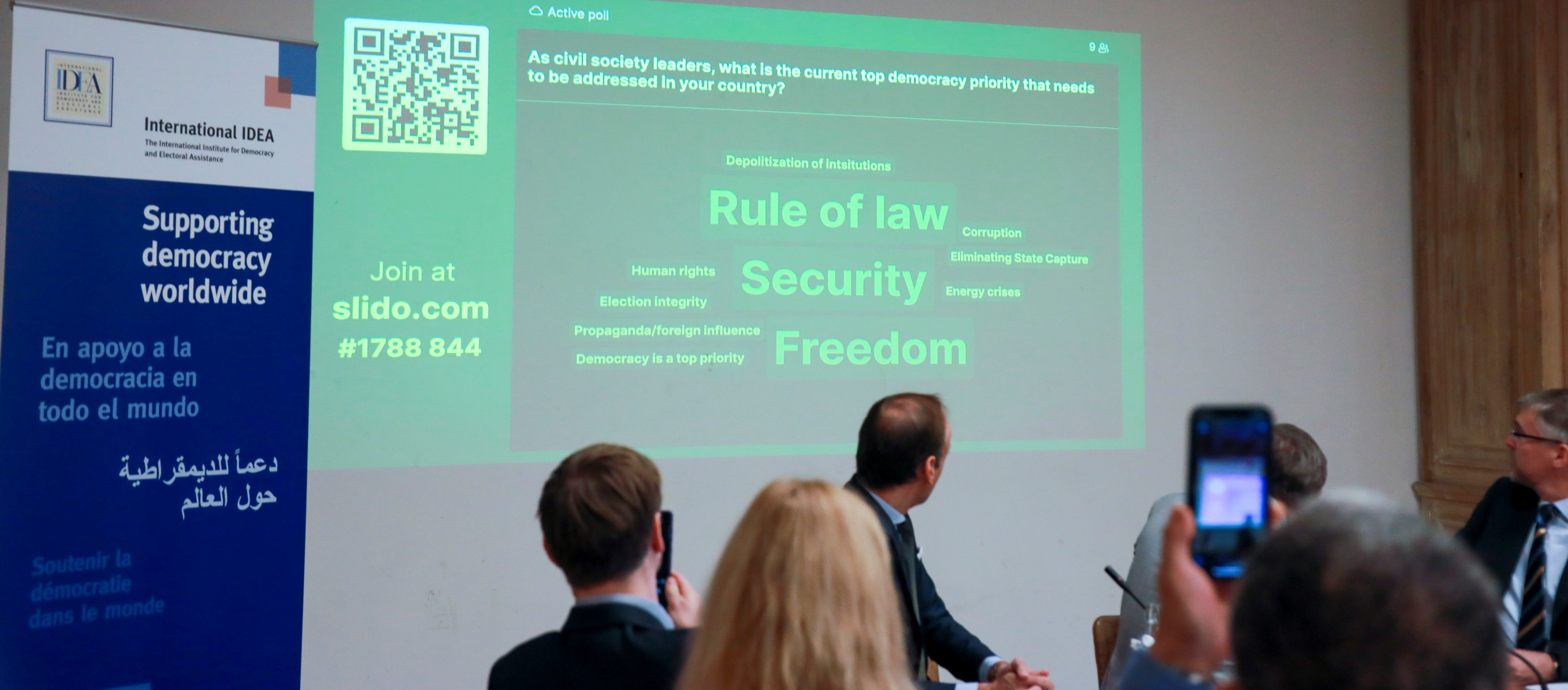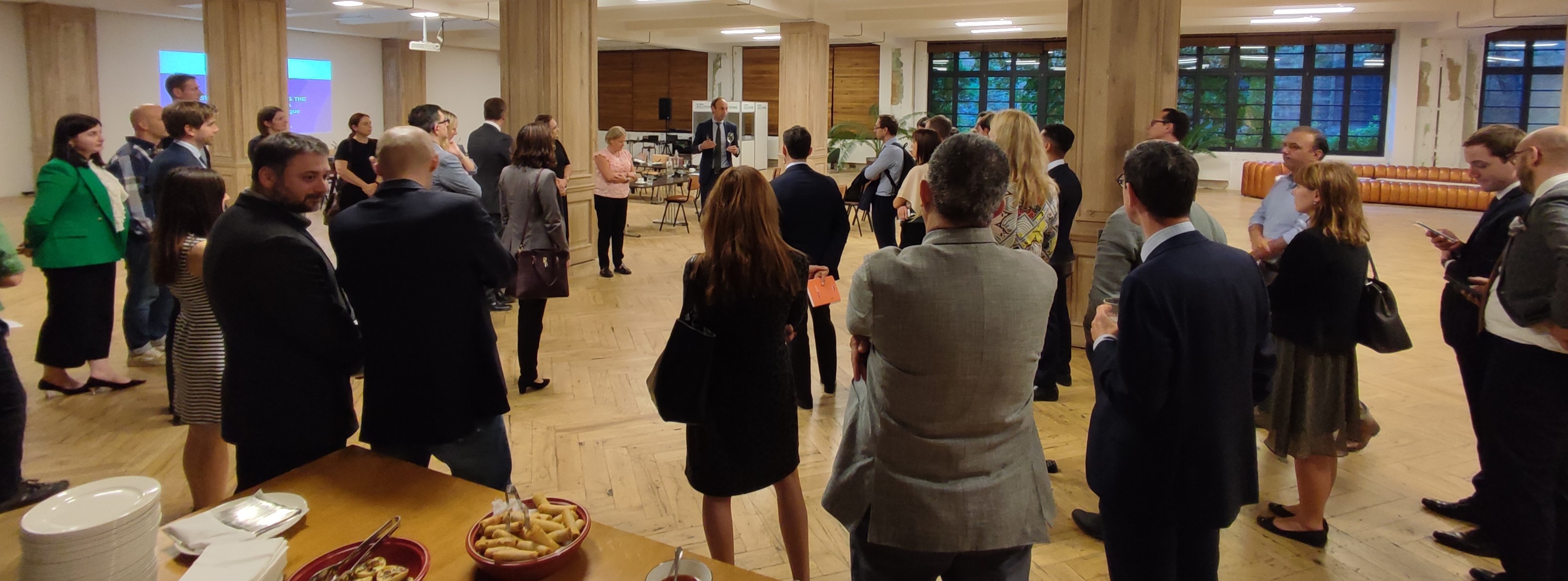Eastern Partnership dialogue on the EU's external democracy action

The European Union’s Eastern Partnership (EaP) covers six countries: Armenia, Azerbaijan, Belarus, Georgia, Republic of Moldova and Ukraine. The Covid-19 pandemic put a strain on fledgling democracies in the EaP region, aggravating pre-existing concerns, such as the weak rule of law, insufficient accountability of executive branches vis-à-vis legislatures and fragile media freedoms (see International IDEA 2022).
In Belarus, the authoritarian regime violently suppressed the protests after the falsified presidential elections in summer 2020 and decimated almost all pro-democracy actors in the country. The 40-day war over Nagorno Karabakh in September 2020 between Armenia and Azerbaijan brought further challenges for democratic governance in Armenia and worsened the already bleak situation of civil society in Azerbaijan. Russia’s war of aggression against Ukraine is a key watershed moment for the whole region and its relations with the EU. Acknowledging the country’s resilience and assessing positively the level of preparedness for starting the EU accession process, including the quality of democracy and the functioning of democratic institutions, the EU fast-tracked the candidate status for Ukraine in June 2022. It did so for Moldova as well and recognized the European perspective of Georgia.
The Sweden EU Presidency & the Democracy Agenda project organized a regional consultation in Tbilisi, Georgia n the 29 September 2022. Twenty civil society representatives from the six Eastern Partnership countries came together to discuss democracy trends in the region and the relevance and coherence of the EU´s external democracy policy.
Ulrik Tideström, Ambassador Extraordinary and Plenitpotentiary of Sweden to Georgia, and Petr Mikyska, Ambassador Extraordinary and Plenipotentiary of the Czech Republic to Georgia, opened the conference. They discussed with participants the lessons that the EU drew from the latest democracy developments in the countries and how the EU, through the impulse of the Czech and Swedish Presidencies of the Council of the EU, can support democracy more effectively in the region.

The regional dialogue showed that the EU is perceived to be a major driver of democratic transformation in the region and that the EU accession process is an opportunity to incentivize further democratic reforms. However, there is room for improvement and alignment of its sectoral policies with its democracy agenda. A reinforced policy towards the region, based on clear benchmarks and support for democratic reforms aimed at bringing the countries closer to the EU are key to developing democratic resilience and popular support for reforms in Eastern Europe. Implementation of democratic reforms must be a multi-stakeholder process, involving both governments and civil society and other democracy actors. The EU can push for change but should let the domestic actors own the process and bring about results. Flexible forms of EU civil society support have been piloted in the Eastern Neighbourhood. Still, it is necessary to broaden the scope of EU assistance to civil society to provide direct support to non-traditional actors and grassroots organizations.

The green agenda is still largely underdeveloped or poorly implemented in the region. The European Green Deal is seen as a potential model to follow. However, EU assistance in knowledge transfer and capacity sharing is needed to strengthen the capacities of democratic institutions in this field and ensure their legitimacy. The digital agenda is considered a vehicle for democratic change, but it should prioritize addressing the issues of disinformation and security that are direct threats to democracy. Moving ahead, the EU’s support to connect digitalization with democracy in Eastern Europe should be a two-way street. As a global rule-setter, the EU has a lot to share but has also a lot to gain from the digital expertise and capacities developed in the region to defend democracy, notably in the context of the war in Ukraine.
Members of the Council of the EU Working Party on Eastern Europe and Central Asia, on a field visit to Georgia, joined the civil society representatives to informally exchange views on their respective work.

In the margins of the regional consultation, a delegation of the Regional Europe Programme of International IDEA was invited to attend a working dinner with EU Heads of Mission hosted by the Swedish Ambassador to Georgia. It allowed for a strategic discussion among EU ambassadors and International IDEA representatives on the state and trends of democracy in the Eastern Partnership region in the light of the recent geopolitical changes.
For more information on The EU´s external democracy action in a new geopolitical reality recommendations report, visit our webpage. The report contains further considerations on the EU´s democracy action in the region.




